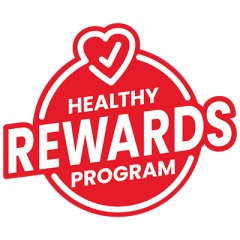It is very important that you have a successful recovery after having your baby, so make sure to make a postpartum appointment.
It is recommended to schedule at least two postpartum visits in the 8 weeks after delivery. Make a list of all the questions you may have so you do not forget to ask your doctor about them. The following can be included in your list:
- Warning signs of health problems.
- Your reproductive plan, including birth control.
- Health conditions, like diabetes or heart disease that need treatment after you have your baby.
- Breastfeeding vs. formula feeding your baby.
- Signs of Postpartum Depression, also called PPD.
We can help schedule your appointment and even set up a ride at no cost to your checkup. Call us at 832-828-1430 to request assistance.
Many women experience the ‘baby blues’ in the first few days after giving birth, but when it sticks around, it can have a great impact in your life.
Postpartum depression (PPD) includes strong feelings of sadness, anxiety (worry) and tiredness that last for a long time. If you think you have PPD, it is important you see your doctor as soon as possible. It is nothing to be ashamed of, but you need to seek help. Do not be afraid to ask for help from family members or friends with house chores, babysitting, etc. Click here for more information.
You must still eat well to recover and have the energy to care for yourself and your baby. Visit myplate.gov to learn more about what foods are best for you after your pregnancy.
During pregnancy, your body changed a lot. Now that your baby is here, your body is changing again.
These are some of the expected physical changes you may be feeling after giving birth:
- Perineum (area between your vagina and rectum) soreness.
- Pain around the cesarean incision area.
- Belly cramps.
- Hemorrhoids and constipation.
- Breast swelling and discomfort.
- Feeling stressed and overwhelmed.
Sometimes, however, there are warning signs or symptoms of a health problem that needs treatment. Make sure to go to your postpartum appointments, even if you’re feeling fine. Your health care provider can help spot and treat health conditions right away.
For more information about the changes your body goes through after giving birth, and what you can do to manage them, click here.
New moms are at risk of serious and sometimes life-threatening health complications in the days and weeks after giving birth.
If you notice any of these signs of infection, talk to your doctor right away:
- Fever higher than 100.4 F.
- Heavy bleeding or passing of clots.
- Redness or a lump in your breast.
- Vaginal discharge that smells bad.
- The area around your stitches is red and hot.
- Pain on your back, your legs or when you urinate.
- Strong feelings of sadness, anxiety and tiredness, also known as postpartum depression (PPD).
Click here for more information.
It is important to prepare for the arrival for your baby and help your baby adjust to his or her new world.
Here are some helpful resources and tips on newborn care.
As a pregnant member, you have one year of postpartum coverage with your OBGYN. For other health/medical concerns (cough, stomach pain, headaches, etc.), you should contact your Primary Care Provider (PCP).
Don't have one? Click here
Visit Healthy Texas Women if you are still looking for medical checkups after your postpartum coverage for chronic conditions.




